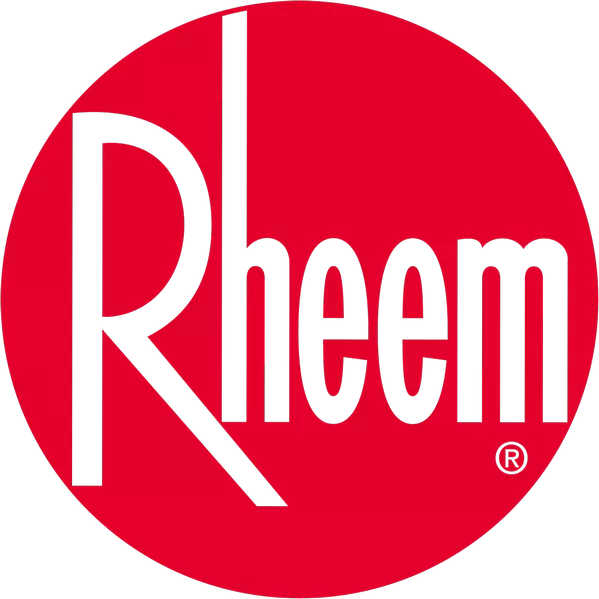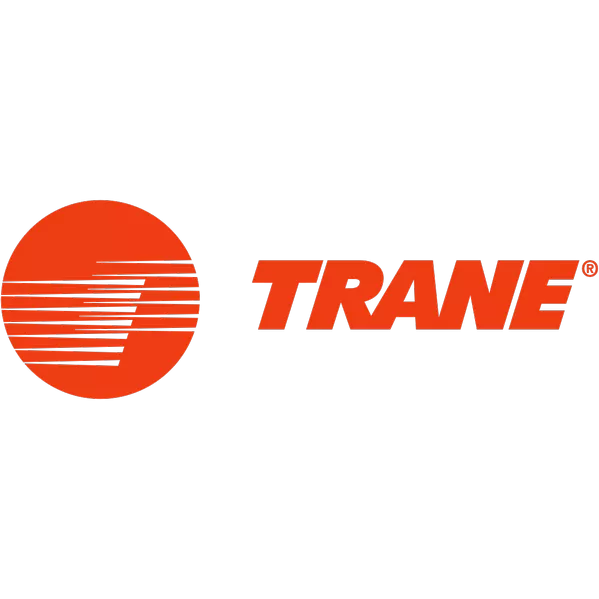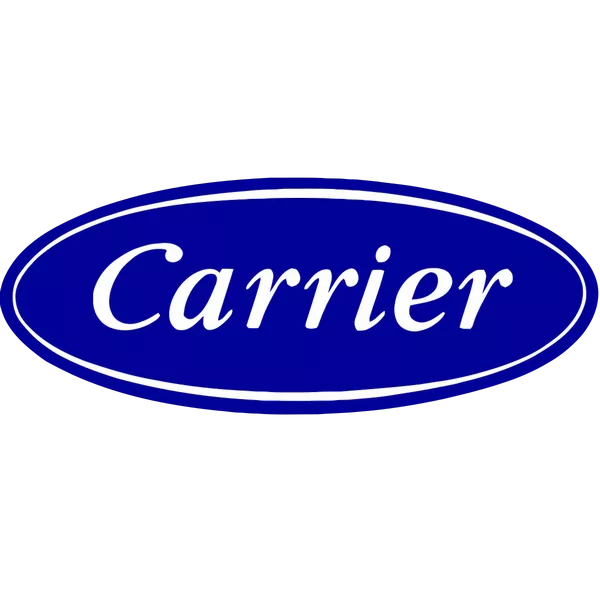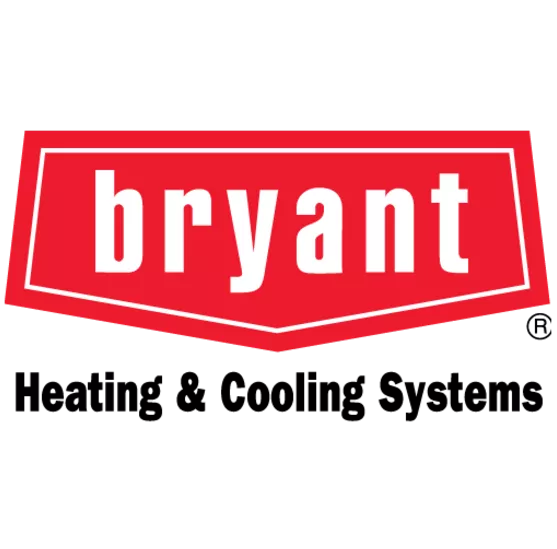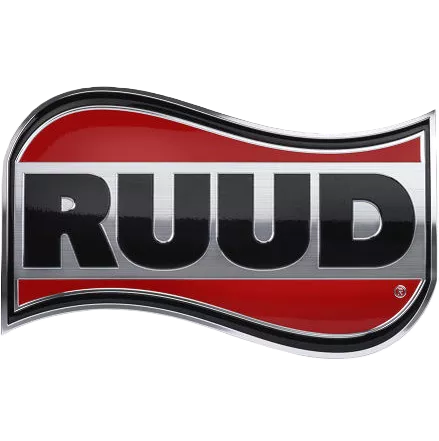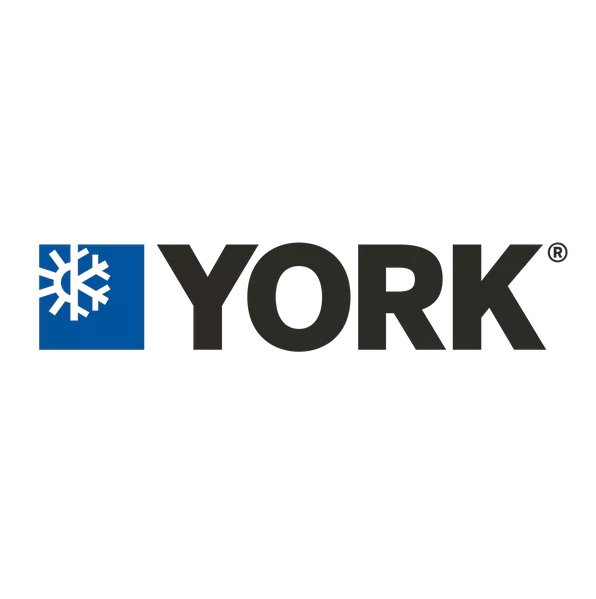Trane: Founded in 1913, this manufacturer built a reputation for rugged outdoor cabinets, predictable parts logistics, and variable-capacity systems that deliver steady, low-drama comfort in tough climates. The premium lineup is well known among contractors for consistent commissioning and stable day-to-day behavior. Here the focus is the XV20i variable-speed central AC, the S9V2-VS variable-speed gas furnace, and the XV20i variable-speed heat pump as the representative trio, and the judgments below come from side-by-side testing and homeowner follow-ups on those exact units.
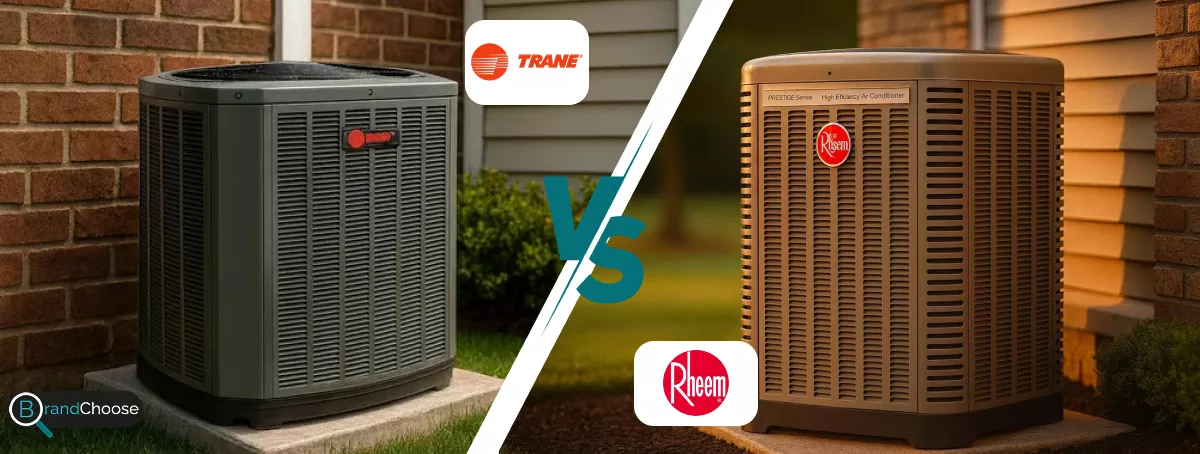
Rheem: With roots in mid-century heating and water-heating, this brand has evolved into a full residential comfort lineup that emphasizes practical efficiency, corrosion-resistant construction, and straightforward upgrade paths. The flagship Endeavor Prestige tier is designed for variable-capacity comfort without making the catalog feel like a maze. For this comparison the spotlight is the Endeavor Prestige RA20 variable-speed central AC, the Endeavor Prestige R98MV modulating gas furnace, and the Endeavor Prestige RP20 variable-speed heat pump, and everything below will be judged on how these perform together as a matched set.
Product Selection
| Primary Use Case | Trane | Rheem | ||
| Air Conditioner | XV20i | 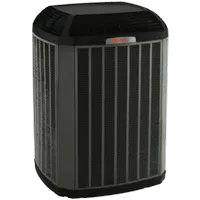 |
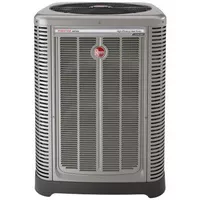 |
RA20 |
| Gas Furnace | S9V2-VS | 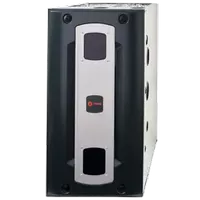 |
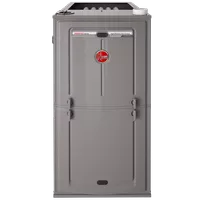 |
R98MV |
| Heat Pump | XV20i | 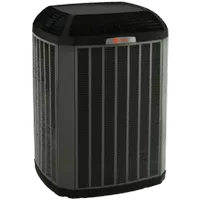 |
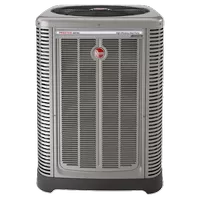 |
RP20 |
🟦 Trane: The portfolio maps premium XV, then XL/XR for mid to entry, which contractors like because there are many capacity and air-handler pairings to fine-tune airflow and staging. The XV20i + S9V2-VS + XV20i HP trio anchors the top of that tree and scales cleanly through tonnages, with coil tables that keep variable behavior intact. Browsing can feel more granular to a homeowner, but in skilled hands it becomes a dial-it-in toolkit that adapts to duct quirks instead of forcing a one-size-fits-all spec.
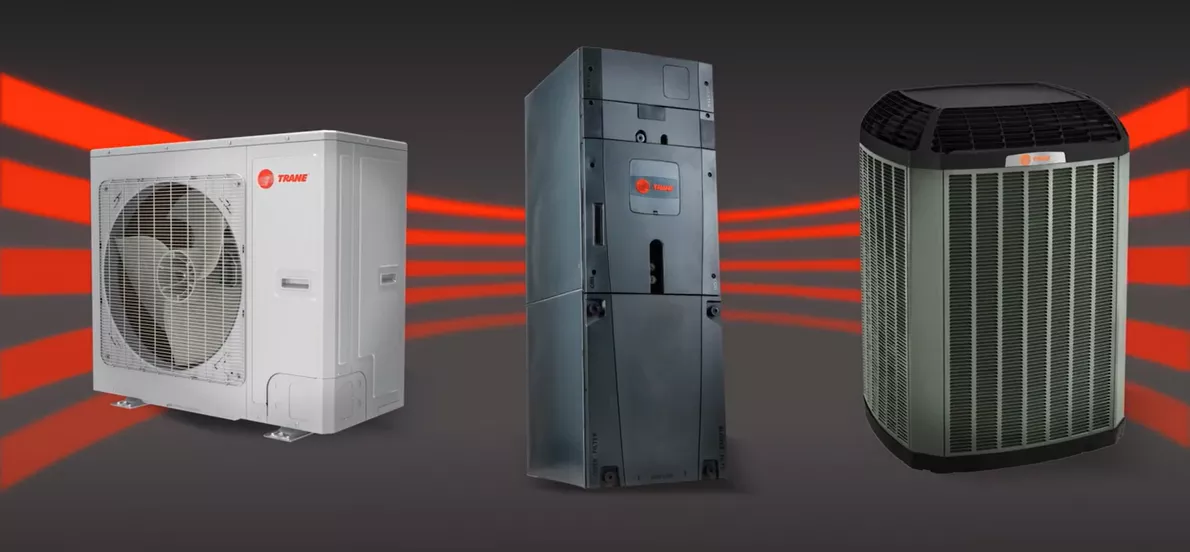
🟪 Rheem: The Endeavor structure is easy to climb - Prestige at the top, then Classic Plus and Classic - so stepping up or down in efficiency, sound, and features is linear. The RA20 + R98MV + RP20 combination shows up often in 2–4-ton homes that need tighter humidity and smooth temperature ramps, and published matchups pair outdoor units, coils or furnaces, and the communicating control so features and ratings carry across sizes. For shoppers that means a short path from “premium comfort” to a matched spec, with later add-ons like zoning or advanced IAQ handled as clean, documented upgrades.
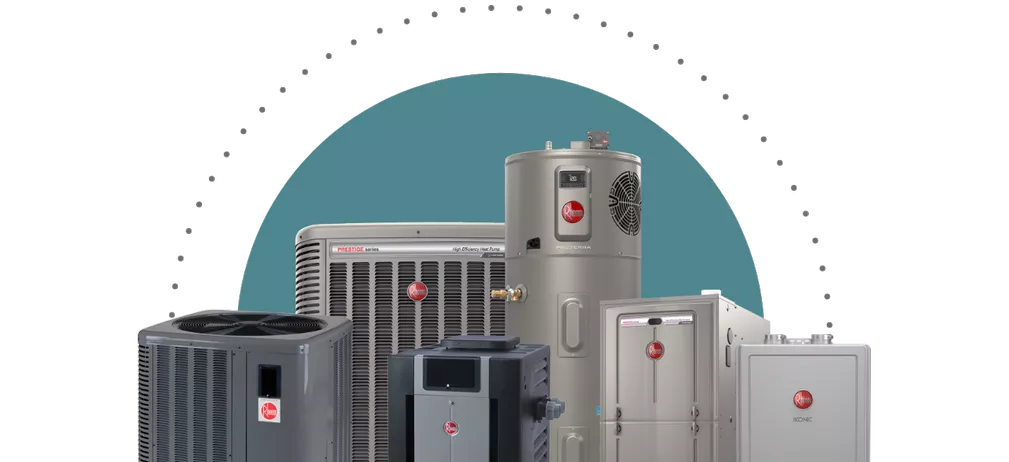
✅ Verdict: Rheem for shopper clarity; Trane for pro-grade granularity.
Customer Support & Warranty
🟦 Trane: Registration likewise yields 10-year parts and robust exchanger coverage, and many dealers describe claim handling and parts logistics as steady and predictable. Uniform processes, documented coil and control pairings, and broad stocking of ECM modules make midsummer fixes less stressful. In regions with strong dealer density, the time from diagnosis to repair is routinely short.
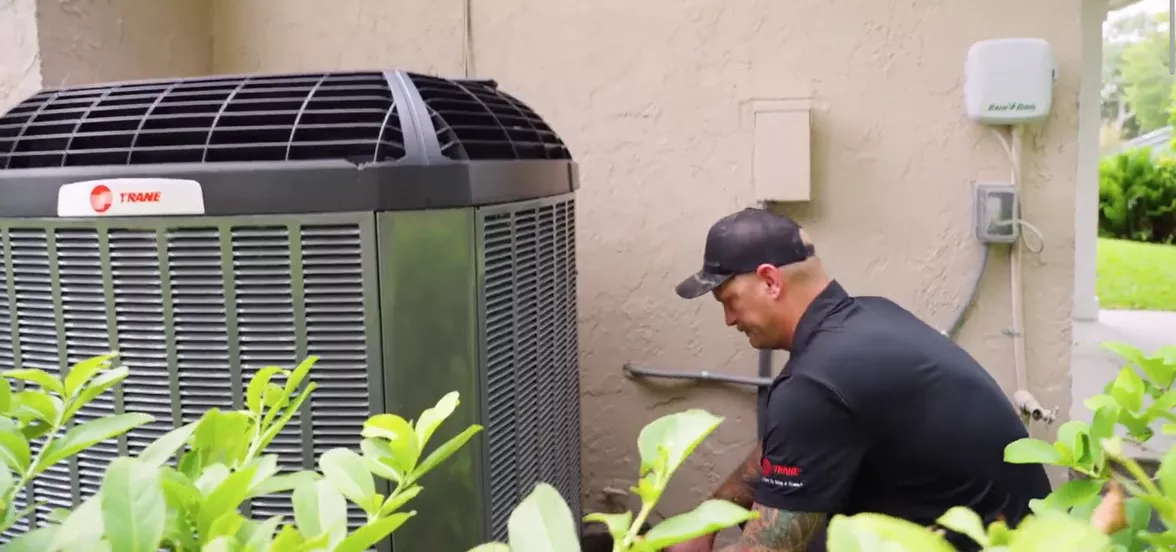
🟪 Rheem: Registration brings 10-year parts coverage at the flagship tier and strong heat-exchanger terms on the furnace, with service experiences buoyed by distributors that stock common boards, motors, and sensors. Where the network is dense, parts flow and turnaround are quick, and matched-set guidance helps preserve communicating features after service events. As ever, outcomes are best when the original communicating control remains in place.

✅ Verdict: Trane for consistency across more markets; Rheem is smooth where its distributor footprint is strong.
Energy Efficiency
🟦 Trane: The XV20i AC/HP land in the high-tier SEER2/HSPF2 ranges and the S9V2-VS provides high-90s AFUE, so the stack is firmly premium even if headline numbers are not chased at all costs. Design emphasis is yield across weather patterns - modulation and blower profiles avoid short cycling in shoulder seasons and prevent wasteful over-dehumidification in muggy stretches. In right-sized homes with sealed ducts and precise airflow targets, >20 percent seasonal reductions are routine.

🟪 Rheem: The flagship AC sits in the premium SEER2 bracket (SEER2 is the current seasonal cooling efficiency metric), the R98MV reaches ultra-high AFUE (AFUE is gas furnace fuel-to-heat efficiency), and the RP20 delivers upper-tier HSPF2 (HSPF2 is seasonal heating efficiency for heat pumps). Real savings come from partial-load behavior: an inverter compressor and ECM blower (ECM is an electronically commutated motor that modulates speed precisely) run long, low-power cycles that trim on-off losses while keeping temperature and indoor humidity steady. With sealed ducts and charge verified by superheat and subcool (temperature checks that confirm refrigerant is boiling and condensing in the right places), double-digit bill reductions versus 12–14 SEER legacy gear are common.
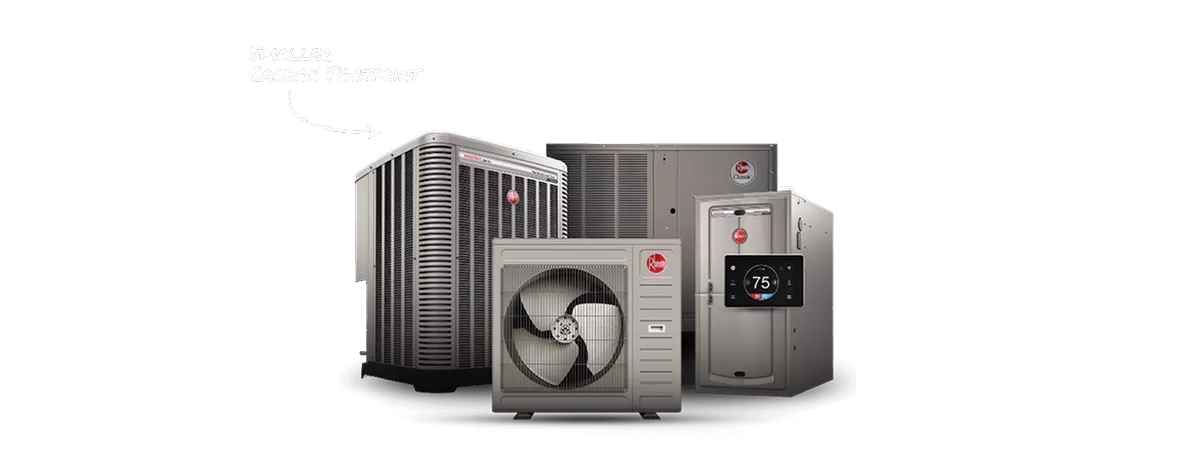
✅ Verdict: Rheem for headline AC efficiency, Trane for impressively steady real-world yield.
Smart Features & Connectivity
🟦 Trane: The premium control stack offers the same fundamentals - communicating operation, zoning, remote access, and robust diagnostics - with a bias toward stability that owners appreciate after the first season. Interfaces are clean, schedules and geofencing behave predictably, and the comfort logic favors smooth ramps and sensible humidity control that is felt more than seen. Access to fault histories trims truck time and reduces parts guesses.
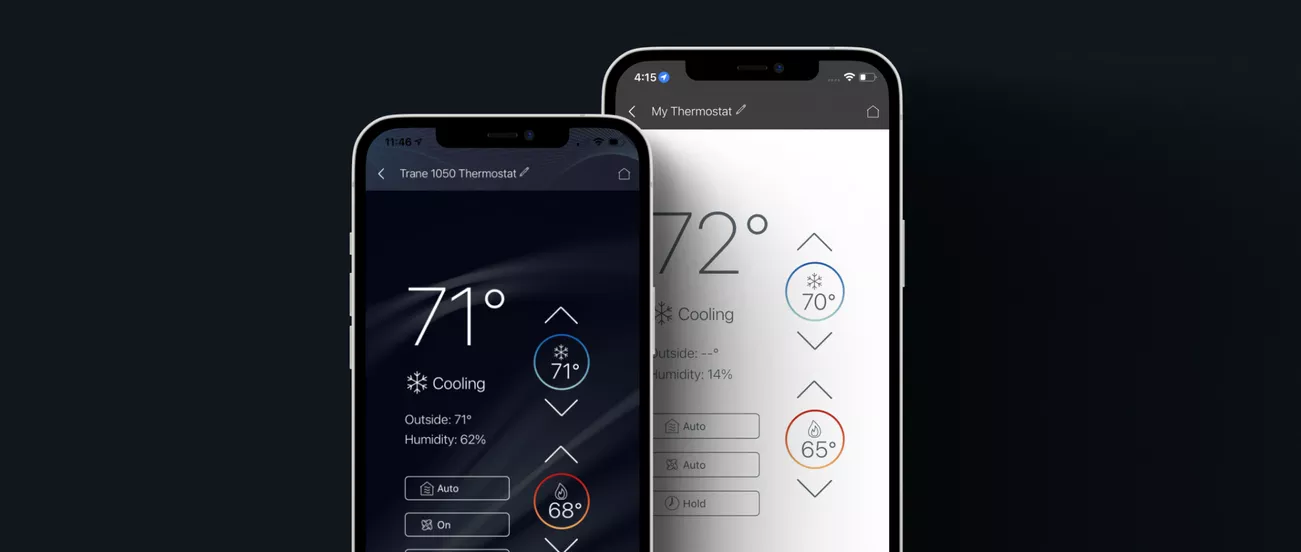
🟪 Rheem: The EcoNet control is a communicating thermostat (a control that exchanges live data with equipment so modulation targets comfort rather than simple on-off), coordinating compressor speed, blower cfm, and coil temperature to meet temperature and humidity setpoints efficiently. Zoning, dehumidify-on-demand, IAQ modules, and event logs sit under one roof, which helps technicians solve causes instead of symptoms and keeps features intact after service. Third-party thermostats can run the equipment, but staying within the ecosystem preserves staged airflow during humidity pulls and optimized dual-fuel logic.

✅ Verdict: Rheem for cohesive IAQ orchestration; Trane for rock-steady day-to-day control.
Noise Level
🟦 Trane: The premium condenser is engineered for long, low-power runs with a top-discharge layout and fan geometry that reduce high-pitch tones that carry across fences. Indoors, the variable-speed furnace blower eases into target airflow, trimming the turbulence that older sheet metal can amplify. As with any flagship setup, site choices and static control dominate the outcome, but cabinet stiffness and low-speed steadiness make a calm baseline easier to achieve.
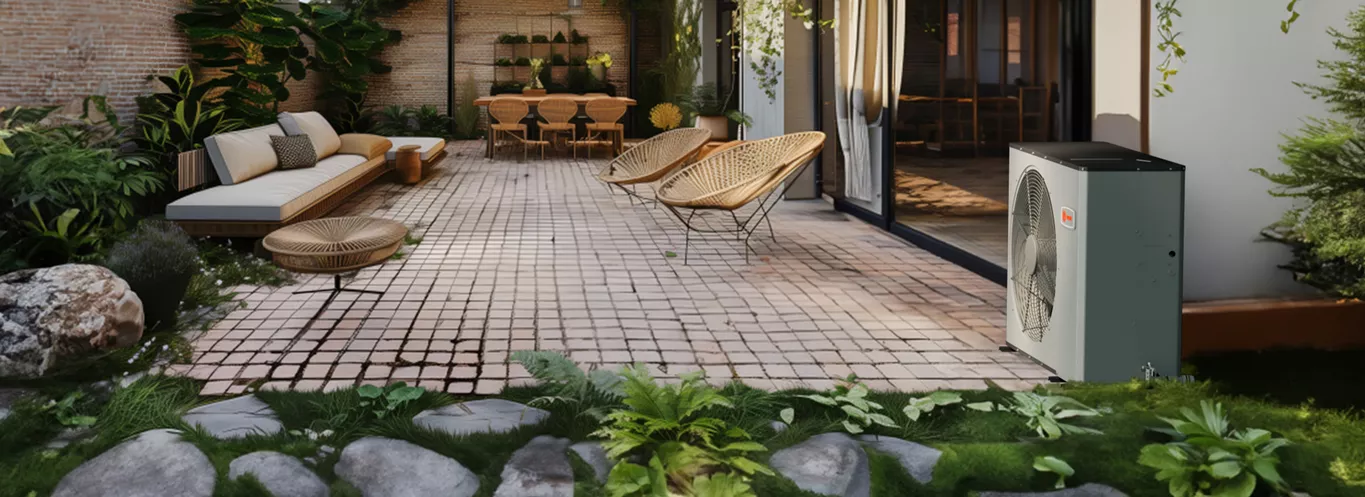
🟪 Rheem: At partial load the Endeavor Prestige condenser and variable-speed ECM blower (electronically commutated motor that adjusts speed precisely) settle into a low, even register that most yards absorb easily. Outdoor loudness is expressed in dB (decibels, a logarithmic sound unit), and indoor quiet hinges on gentle ramps that avoid pressure spikes in trunks, which is more about external static pressure than the cabinet itself (external static pressure is the duct system’s airflow resistance, measured in inches of water column). With a level pad, a short flexible line-set section for vibration decoupling, and reasonable clearance from reflective walls, the sound signature stays soft and non-tonal through typical cooling cycles.
✅ Verdict: Trane is typically the quieter yard-side listen, while Rheem keeps indoor ramps extra gentle for a hush you notice at the registers.
Cost & Affordability
🟦 Trane: Like-for-like quotes trend premium as well, with AC only XV20i commonly 11,500 to 20,000 USD, furnace only S9V2-VS 6,000 to 9,500 USD, heat pump only XV20i 12,500 to 22,000 USD. Matched AC plus furnace packages often post 15,500 to 29,000 USD, and dual-fuel sets 17,500 to 33,000 USD, with spreads driven by accessories, static correction work, and regional dealer programs.
🟪 Rheem: Installed pricing for a 3-ton reference job with standard labor and no duct replacement commonly lands around AC only RA20 with matched coil 11,000 to 19,000 USD, furnace only R98MV 5,500 to 9,500 USD, heat pump only RP20 12,000 to 21,000 USD. A matched AC plus furnace set often prices 15,000 to 28,000 USD, and dual-fuel typically 17,000 to 32,000 USD. Electrical upgrades, crane lifts, or line-set reroutes can add 10 to 25 percent, while rebates and off-season promos trim the invoice.
✅ Verdict: Rheem usually comes in a touch lower for comparable variable-speed comfort, while Trane often prices at the top of the premium bracket.
Reliability & Durability
🟦 Trane: Rugged cabinets and a debris-shedding outdoor coil design keep condensing temps in check, and the control strategy favors long, low-stress cycles over frequent starts. Parts logistics and uniform processes are widely praised by dealers, which shortens peak-season repair timelines. As ever, discipline on charge, airflow, and static pressure is the difference between set-and-forget and nuisance trips.

🟪 Rheem: Powder-coated cabinets and all-aluminum indoor coils help curb formicary corrosion (microscopic copper pitting from household organics), and inverter logic avoids hard starts that stress compressors. Long-term outcomes still hinge on tight commissioning: precise charge verified by superheat and subcool checks (temperature readings that confirm refrigerant is boiling and condensing in the right places), airflow near 350 to 400 cfm per ton (target airflow per ton of cooling), and clean coils that shed heat in peak weather.
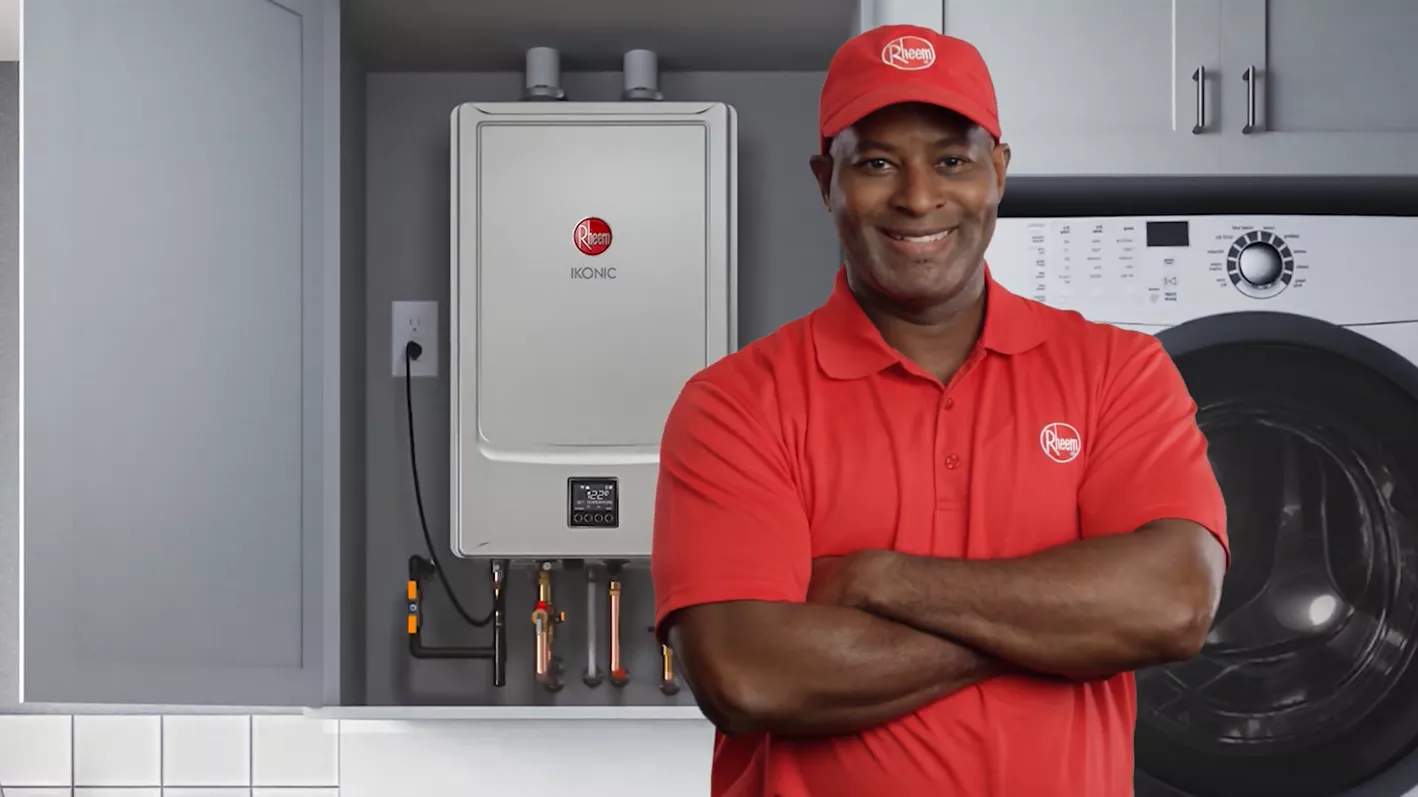
✅ Verdict: Trane earns the nod on field reputation and parts pathways, while Rheem matches well when commissioning is meticulous and distributor support is strong.
Cooling Performance
🟦 Trane: Variable-capacity operation biases toward deep low-speed runs that hold coil temperature and fan profiles in a sweet spot for latent control. The platform manages SHR to a comfortable balance (SHR, or sensible heat ratio, is the share of total cooling that goes to temperature rather than moisture), which is why rooms feel less sticky even with setpoints a degree higher. With a matched coil and correct charge, distant rooms stay steadier because low-power cycles keep air moving longer.

🟪 Rheem: The inverter matches outdoor capacity to indoor airflow so the evaporator runs cool enough to capture both sensible load and latent load efficiently (sensible is temperature change, latent is moisture removal). During humidity pulls the control trims airflow to lower cfm per ton (airflow per ton of cooling), keeping the coil colder longer and boosting moisture pickup without overcooling rooms. The outcome is long, stable cycles, predictable return-to-supply delta-T (delta-T is the air temperature drop across the coil), and indoor RH that lives near the mid-40s to 50 percent band through muggy stretches.
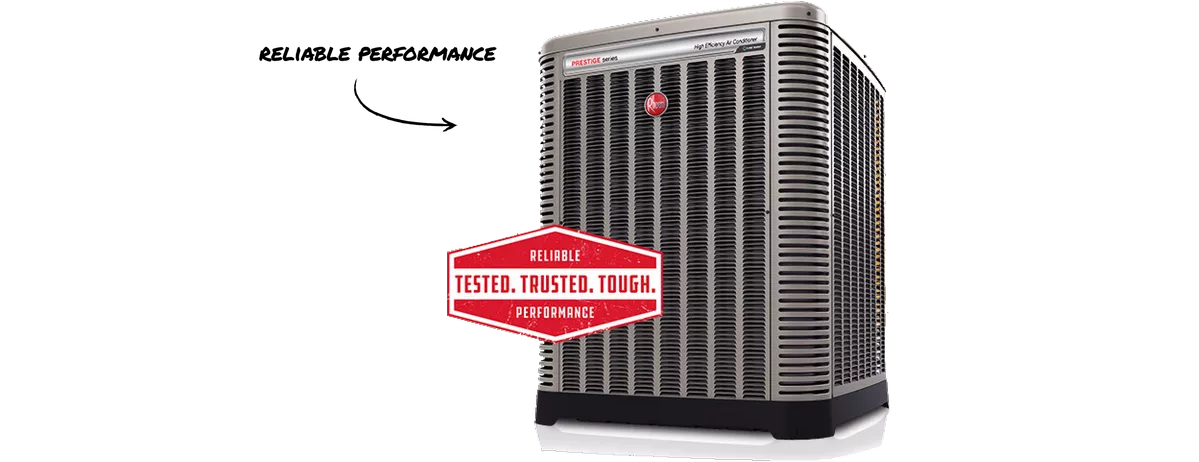
✅ Verdict: Cooling feel is effectively neck and neck, with Rheem nudging humidity down quickly during latent-heavy hours and Trane holding ultra-steady temperatures on long, quiet runs.
Heating Performance
🟦 Trane: The S9V2-VS furnace pairs a two-stage gas valve with a variable-speed blower to cover most winter hours on low fire, trimming cycling and tempering supply-air swings. The XV20i heat pump’s deep turndown keeps meaningful capacity into colder weather, and demand-defrost logic avoids unnecessary reversals that would chill the coil. With dual fuel, the balance point can be tuned to local energy rates so electric carries shoulder seasons while gas covers deep cold.
🟪 Rheem: The R98MV modulating furnace trims fuel in small steps with a variable-speed ECM blower (electronically commutated motor that adjusts speed precisely), so supply air warms smoothly without blast-then-coast swings. The RP20 heat pump uses an inverter compressor to hold output just above the load, which lifts HSPF2 performance (seasonal heat efficiency for heat pumps) because long low-power cycles minimize waste. In dual-fuel setups the control hands off to gas at a user-set balance point (the outdoor temperature where gas becomes cheaper or more comfortable than electric), keeping comfort and bills predictable when temperatures drop.
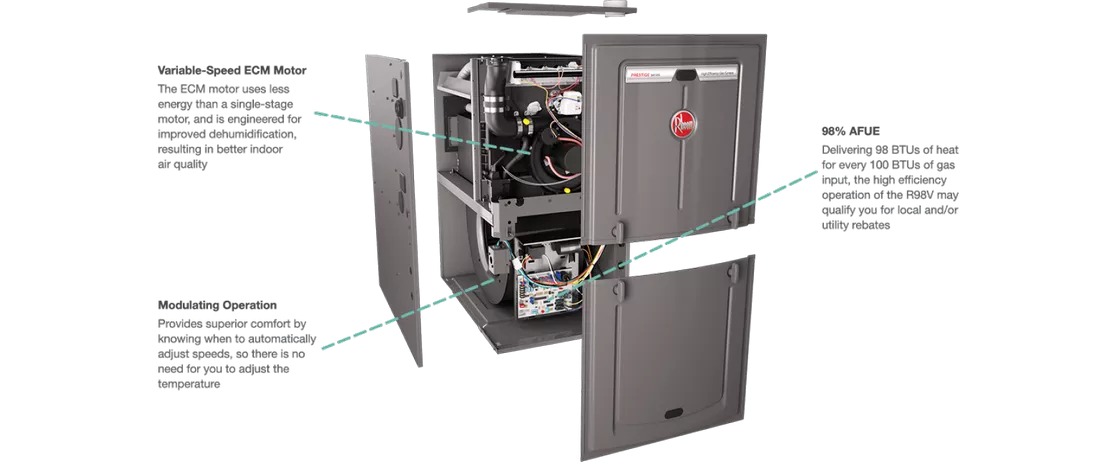
✅ Verdict: Rheem leads on gas-heat finesse, while Trane holds the edge for low-temperature heat-pump steadiness.
Indoor Air-Quality Enhancements
🟦 Trane: The premium control stack coordinates media filtration, UV or electronic cleaners, humidification, and balanced ventilation while keeping duct external static pressure within blower targets (external static pressure is duct resistance, measured in inches of water column). Longer low-speed runs increase filter contact time, and fan profiles bias toward latent removal when RH rises, reducing the cool-but-clammy feel typical of short cycling.
🟪 Rheem: The EcoNet ecosystem ties filtration, humidity, and ventilation into one plan. High-MERV media cabinets are supported out of the box (MERV is a filter rating that indicates how small a particle the filter can capture), and the control can lower cfm per ton (airflow per ton of cooling) during humidity pulls so the coil stays colder for stronger latent removal. Whole-home humidifiers and ERV/HRV ventilators integrate cleanly (ERV/HRV bring in fresh air while exchanging heat or moisture), which helps hold indoor RH in the mid-40s to near-50 percent band without overcooling rooms.

✅ Verdict: Rheem is stronger on one-roof IAQ choreography, while Trane excels at keeping pressures and airflow predictable for quiet, steady results.
Installation & Serviceability
🟦 Trane: The same discipline applies, with clear airflow tables and diagnostics that cut truck time. Cabinets provide direct access to coils, boards, and blowers, and documented coil and control pairings help preserve features after service. Broad distributor stocking of ECM modules and control boards often shortens midsummer repair timelines, getting systems back to long, quiet cycles quickly.

🟪 Rheem: Premium outcomes depend on fundamentals: Manual J for room-by-room load, Manual S for equipment selection, and Manual D for duct design and sizing. Commissioning targets include 350 to 400 cfm per ton, total external static pressure at or below ratings, nitrogen pressure tests, deep evacuation, and charge verification with superheat and subcool readings (superheat and subcool confirm the refrigerant is boiling and condensing in the right places). EcoNet logs surface coil, compressor, and blower behavior so technicians can confirm delta-T across the coil (delta-T is return-to-supply temperature change) without guesswork.
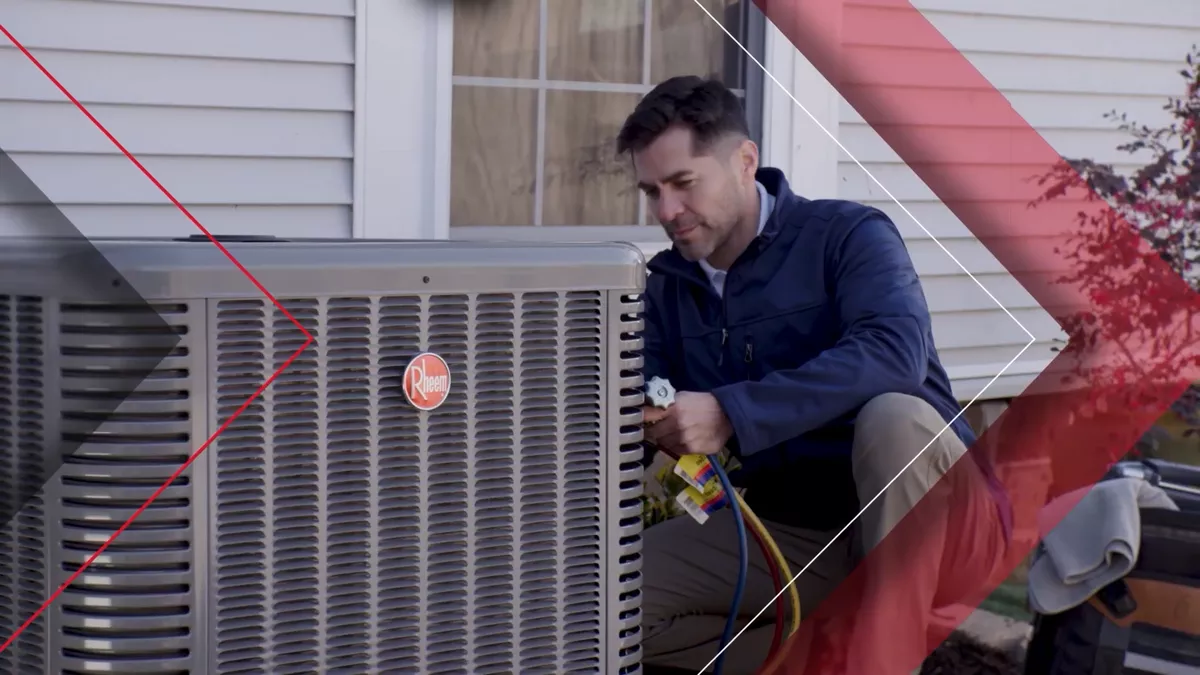
✅ Verdict: Trane has the practical edge for parts pipelines and uniform field processes, while Rheem matches well when commissioning is by the book.
Quick Buyer Match Guide
🟦🟦 Choose Trane if you
You value contractor-friendly granularity, rock-steady low-speed comfort from the XV platform, and a service network known for consistent parts logistics.
🟪🟪 Choose Rheem if you
You want a shopper-simple Endeavor ladder, strong IAQ integration under EcoNet, and finely modulating gas heat with dual-fuel handoff you can tune to local rates.
Conclusion
Rheem prioritizes clarity, cohesive IAQ control, and modulating gas-heat finesse that feels exceptionally even in winter. Trane emphasizes granular match-ups, ultra-steady low-speed behavior from the XV line, and a field reputation for fast, predictable support. If you want the cleanest upgrade path and tight IAQ orchestration, pick Rheem. If you want dial-it-in flexibility and the safest bet on service consistency, pick Trane.

